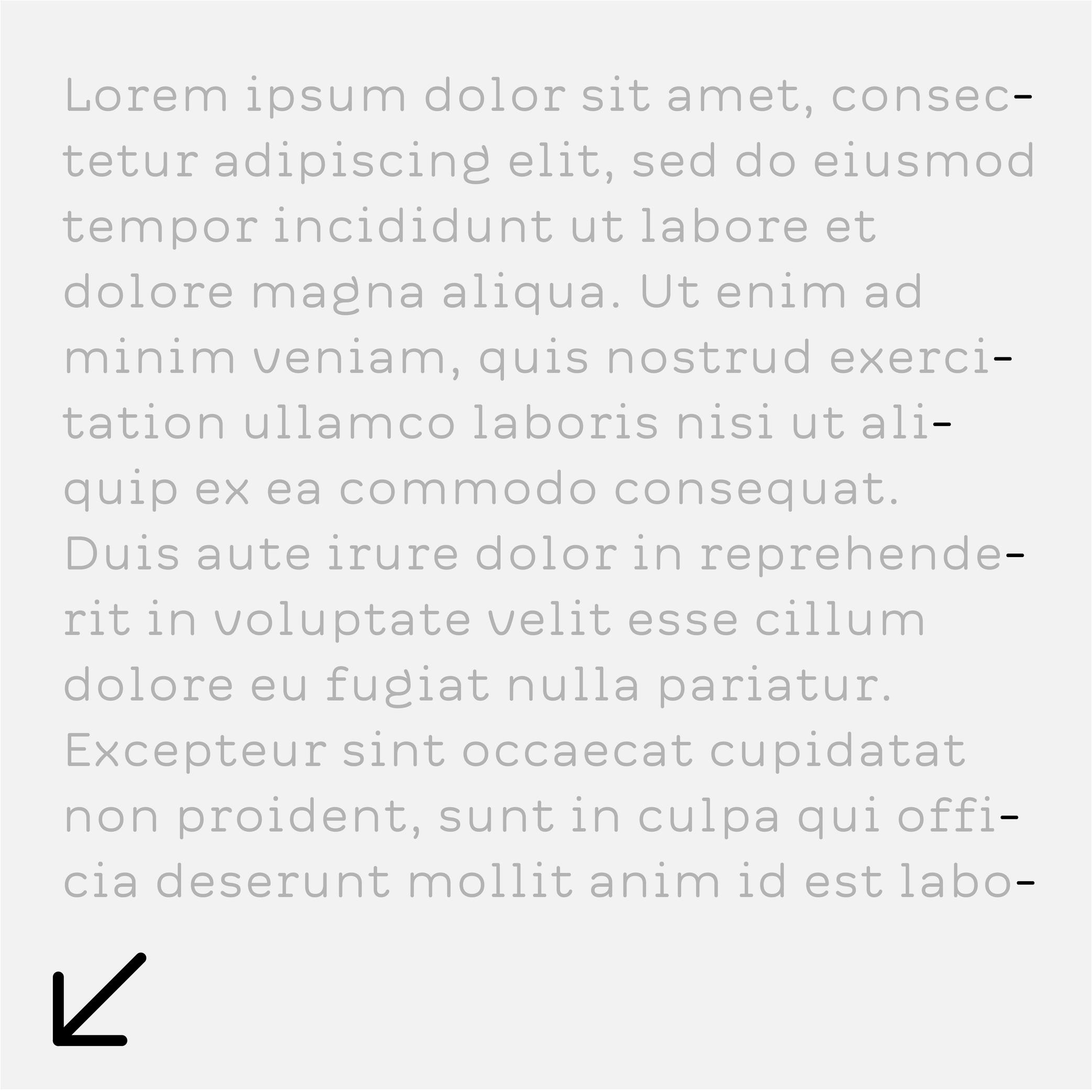Hyphen

Sponsor Word of Type and feature your typeface in this card with a linked caption. Contact us for more information.
FUNCTION
Hyphens are short dash-like glyphs used as word connectors in names or compound words, or to mark a word break (hyphenation in justified or unjustified texts), like in this word card’s illustration.
HISTORY
Before printing presses appeared, scribes used various markings in addition to the letters or characters as signs of punctuation. For the same function, they were often different from one country to the next, and could even be different from one scribe to another. In Ancient Greek manuscripts—when spaces were not used to separate words yet—there was a symbol in the shape of a curved underline used to connect two letters of a word. The name of the hyphen even comes from Ancient Greek: hypó hén, meaning “under one.” Since placing characters under letters with Johannes Gutenberg’s printing press was complicated, the hyphen moved upward to the middle height.
Later, with the limited space on typewriter keyboards, engineers had to make a compromise and put every similar glyph together under one key. This was the case for the en dash, hyphen, and minus signs (the latter two even became a hybrid hyphen-minus).
DESIGN
The hyphen is the shortest dash , and is placed at the same height as its siblings at middle height of letters.
In a typeface style with contrast, the hyphen’s thickness must be visually consistent with that of the thin parts.
TYPOGRAPHIC RULES
The hyphen has no spaces before or after it. See Hyphenation for information on how to use hyphens in a justified text.
NOT TO BE CONFUSED
It is often confused with the mathematical sign minus − (U+2212), which is usually longer than the hyphen, the hyphen-minus - (U+002D), or even with the en dash – (U+2013).
In digital fonts, each of those glyphs have their own Unicode. They are designed and can be accessed individually. But even on our modern keyboards, typewriter keyboards left us the hyphen-minus that we often use mistakenly, instead of the hyphen or the en dash. Thankfully, most intelligent text-processing apps automatically replace the hyphen-minus with the correct glyph depending on the context.
Notes
UNICODE
HYPHEN: U+2010
NON-BREAKING HYPHEN: U+2011
SOFT HYPHEN: U+00AD